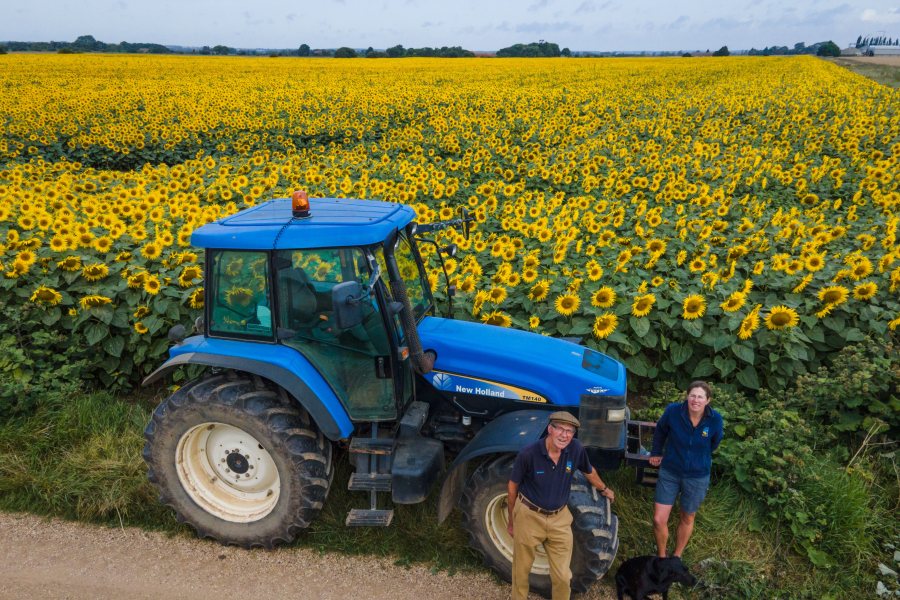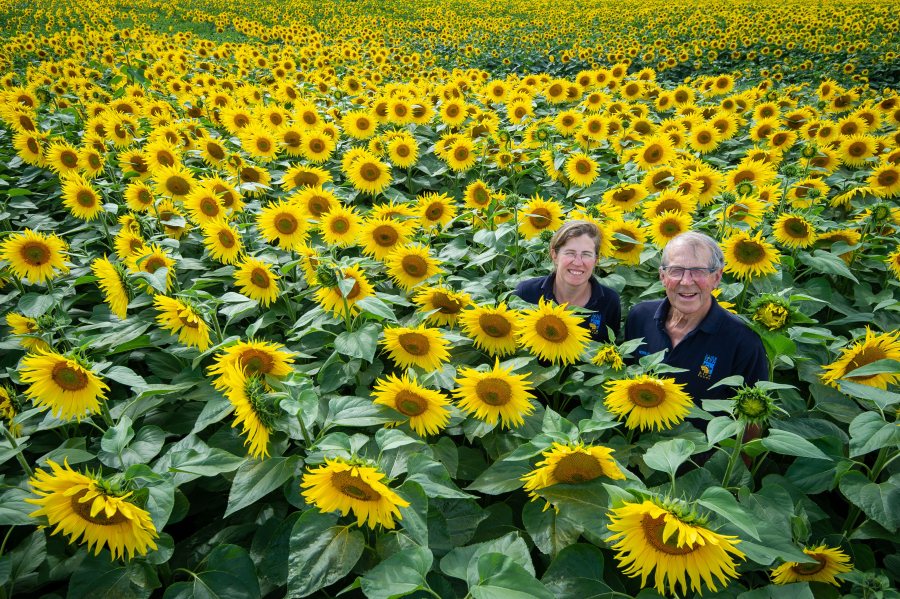
A wildlife-friendly family farm which produces and sells its own bird seed products made from hundreds of acres of sunflowers has raised £2m for charity over the course of 14 years.
Vine House Farm grows black sunflower seeds as part of 400-acres worth of bird seed crops, which will go into wild bird food mixes, along with red millet, canary seed, oil seed rape and naked oats.
The Lincolnshire farm also has hedges, ponds, and wildflower margins at field edges, all created by farmer and conservationist Nicholas Watts.
As a result of this, the land is a haven for flocks of wild birds including, rare and declining tree sparrows, red-listed linnets and lapwing.
A percentage of each purchase of Vine House Farm bird seed goes toward supporting the Wildlife Trusts, with the farm reaching the £2m milestone this week.
The current Covid-19 pandemic has seen more customers than ever coming to the family-run farm, located in Deeping St Nicholas, for advice and wild garden bird food.
Lucy Taylor, manager at Vine House Farm, and Nicholas’ daughter said: “Our partnership with The Wildlife Trusts has long been very important to us.
"A percentage of each purchase of Vine House Farm bird seed goes to support Wildlife Trusts, enabling a greater conservation impact across the country.
“It’s been a proud time for me, my father and all our family to be able to reach the two million pound milestone.

"Now we look forward to the future and being able to eventually reach five million and more.”
Fourth-generation farmer Nicholas Watts has been working the land at Vine House Farm since he was a boy.
His interest in ornithology became part of his work, leading to an MBE for his wildlife conservation work and farm management.
He started feeding birds in his farmyard almost 30 years ago. His wake-up came after discovering corn buntings and skylark numbers had dropped.
Nicholas said: “Summer sees adult birds moult, shedding their old feathers and growing new ones, which takes a lot of energy, so birds still need feeding.
"Sources of natural food, like insects are declining, and in dry weather worms retreat deeper into the soil. Putting out plump sultanas, soaked in water means young birds can get vital moisture.
“Watch who visits your garden, whether they’re ground feeders or prefer perching on trees or shrubs and offer a variety of food, so each bird gets what it needs from seeds to suet, or mealworms.”
